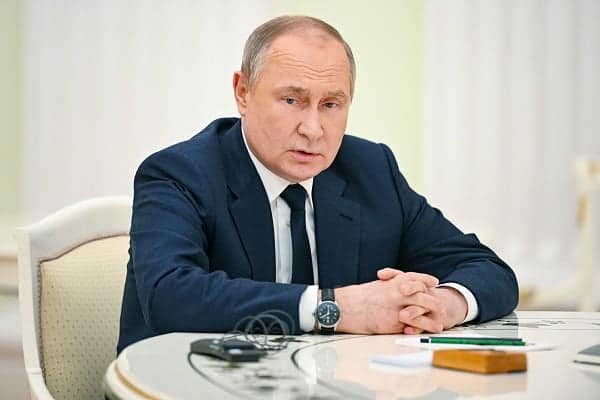study looking at the longer-term impact of Covid-19 has found that nearly a third of patients who were admitted to hospital with the virus had abnormalities in multiple organs five months after infection.
MRI scans of patients in the study showed more abnormal findings involving the lungs, brain and kidneys compared to a group of people who had not had the virus.
According to the findings, abnormalities in the lungs were significantly higher (almost 14-fold higher) among patients discharged from hospital for Covid.
Abnormal findings involving the brain and kidneys were three and two times higher respectively.
At five months after hospital discharge for Covid-19, patients showed a high burden of abnormalities involving the lungs, brain and kidneys compared to our non-Covid-19 controls
The researchers suggest that in patients who did not have other conditions that might have caused abnormalities to their organs, Covid infection may have caused the damage.
The extent of abnormalities on MRI was often influenced by the severity of the Covid infection the patients had experienced and their age, as well as comorbidities (other conditions).
The findings are part of the C-MORE (Capturing the MultiORgan Effects of Covid-19) study, which is being led by Betty Raman, associate professor of cardiovascular medicine, University of Oxford.
She said: “We found that nearly one in three patients had an excess burden of multiorgan abnormalities on MRI relative to controls.
“At five months after hospital discharge for Covid-19, patients showed a high burden of abnormalities involving the lungs, brain and kidneys compared to our non-Covid-19 controls.
“The age of the individual, severity of acute Covid-19 infection, as well as comorbidities, were significant factors in determining who had organ injury at follow-up.”
(The research) provides some validation to patients, especially those who are severely crippled with symptoms, that perhaps there is something that we need to look into and follow up and do more tests to be sure that they don’t have organ involvement
She added: “In patients without organ-specific comorbidities, the damage may well be due to severe Covid-19 infections.
“The pattern of injury can also give us some clues. For example, the pattern of lung changes which map on to ground glass changes on CT scans suggest that this is related.
“The presence of kidney injury in someone with a previously normal creatinine and no renal disease may well be Covid-19-associated changes.
“Yes, we think that comorbidities (for example diabetes, cardiac disease etc) lower the reserve of organs and potentially play a role in delayed recovery, but we see organ abnormalities even in those without comorbidities.”
But Dr Raman said people who had been suffering with long Covid should feel hopeful that the research was ongoing, and that there were some answers.
She explained: “It (the research) provides some validation to patients, especially those who are severely crippled with symptoms, that perhaps there is something that we need to look into and follow up and do more tests to be sure that they don’t have organ involvement.”
Published in The Lancet Respiratory Medicine, the follow-up study of 500 post-hospital admission patients, is a key element of the national PHOSP-COVID platform, led by the University of Leicester, which is investigating the long-term effects of the virus on people who had been admitted to hospital.
The new paper presents the results of an interim analysis of 259 post-hospital admission coronavirus patients and 52 people who did not have the virus – a control group.
Our findings also highlight the need for longer-term multidisciplinary follow-up services focused on pulmonary and extrapulmonary health (kidneys, brain and mental health), particularly for those hospitalised for Covid-19
The study found that while some organ-specific symptoms correlated with the scans – for example, chest tightness and cough with lung MRI abnormalities – not all symptoms could be directly linked to MRI-detected anomalies.
The paper also confirmed that multi-organ MRI abnormalities were more common in patients previously admitted to hospital who reported severely impaired physical and mental health after Covid, as previously described by the PHOSP-Covid study investigators.
Dr Raman said: “What we are seeing is that people with multiorgan pathology on MRI – that is, they had more than two organs affected – were four times more likely to report severe and very severe mental and physical impairment.
“Our findings also highlight the need for longer-term multidisciplinary follow-up services focused on pulmonary and extrapulmonary health (kidneys, brain and mental health), particularly for those hospitalised for Covid-19.”
Although the researchers conducted analysis to reduce this risk of overestimating organ abnormalities, they say a limitation of their study is that they are unable to eliminate organ damage existing before the infection.
The C-MORE study is being led by researchers from the University of Oxford’s Radcliffe Department of Medicine and is supported by the NIHR Oxford Biomedical Research Centre (BRC) and the NIHR Oxford Health BRC, as well as the BHF Oxford Centre for Research Excellence and Wellcome Trust.








